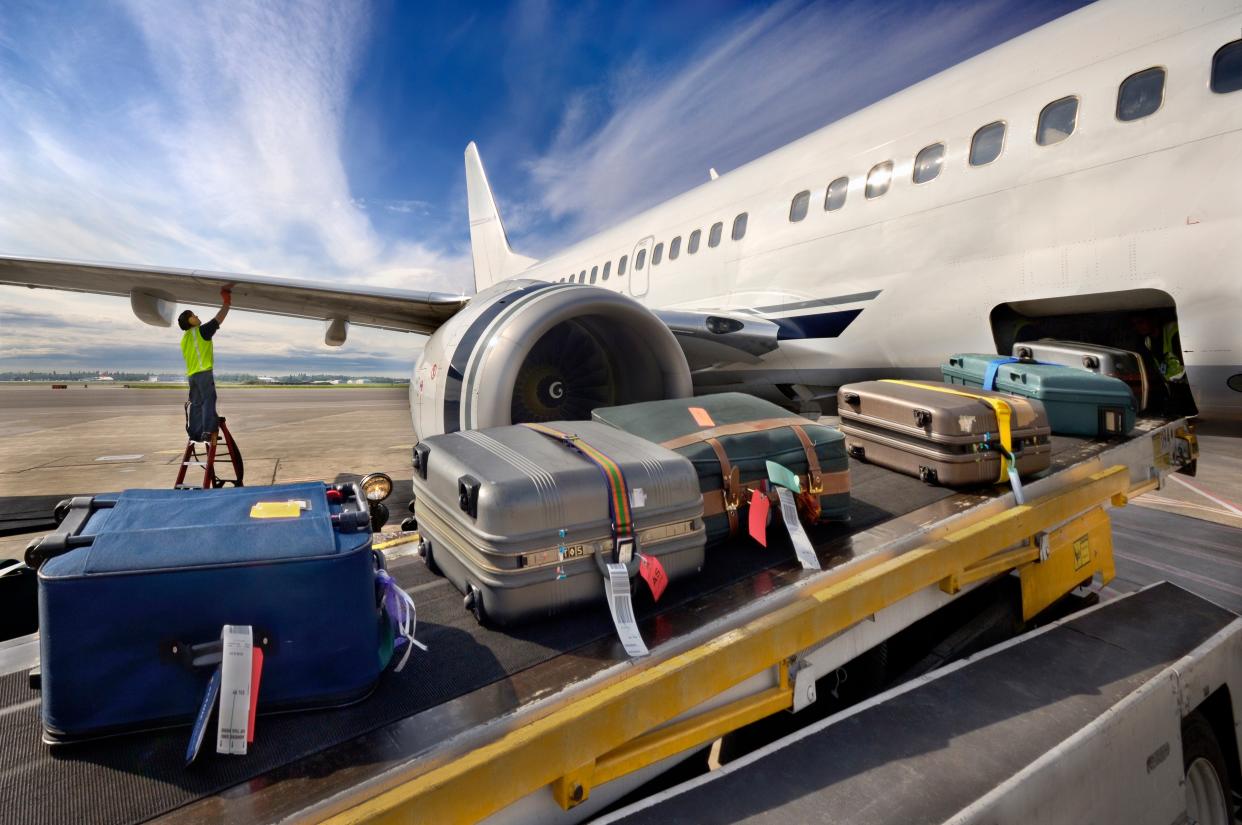Ryanair faces criticism from passengers as new baggage rules come into force

Ryanair is facing a backlash from travellers over its controversial new baggage policy, which means holdalls and small suitcases are now banned from its aircraft cabins unless their owners are willing to pay extra.
The new rules mean passengers are now only allowed one small handbag or laptop bag on board (with maximum dimensions of 35cm x 20cm x 20cm) unless they pay £10 per return flight for priority boarding.
For those who don’t cough up the cash, bigger cases – including backpacks, wheelie cases and holdalls – will be taken at the boarding gate and placed in the hold at no extra cost.
Our new baggage policy is commencing on Monday January 15th. Don't forget to familiarise yourself here. pic.twitter.com/deTjCEBYvX
— Ryanair (@Ryanair) January 9, 2018
Ryanair’s Kenny Jacobs said: “We’re pleased to launch our new cabin bag policy, which has been implemented successfully, and we believe it will speed up the boarding of flights and eliminate flight delays.”
The response from many of Ryanair’s passengers, however, hasn’t been so positive.
Some passengers have reported that the Priority Boarding queue is now longer than the standard boarding queue.
Well done, @Ryanair. More people paying for Priority Boarding than not thanks to your new cabin baggage policy. pic.twitter.com/2DLp6w5EPh
— Jerry Jones (@jezza1956) January 16, 2018
Others complained that they had booked flights prior to the policy change, and have demanded a refund.
Is this a new way to make money @Ryanair? I book a flight yesterday through @EMA_Airport with cabin allowance. Today I’m emailed about “change of policy” saying only 1 small bag allowed unless I pay more? Terms changed after booking. Do I get a free cancellation? #HiddenCharge
— spike (@thefirstspike) January 14, 2018
Some have expressed concern about carrying medication on board. Twitter user @katietagg97 enquired about carrying her epi-pen (used to inject epinephrine) in her “small luggage”, and was instructed by Ryanair to call a number that charges 13p per minute.
I don’t think it’s acceptable you’re going to charge me 13p a minute? You want me to pay €6 to take my suitcase on a plane and now 13p because you’re ruining my flight? I think someone should contact me
— Katie Tagg (@katietagg97) January 10, 2018
In some instances Ryanair appears to be stretching its own rules, instructing one passenger to take a laptop on board that exceeds the permitted size allowance.
Hi Zachary, please take this item on board with you. JH
— Ryanair (@Ryanair) January 12, 2018
Insurance is another concern. Telegraph reader P Patter wrote: “The most important thing here is that your valuables are not covered by your travel insurance if they are in hold luggage. This means if they are lost you won't get a penny”.
As outlined in Direct Line’s travel insurance policy booklet, unattended luggage is defined as: “Any property that you leave unattended – not in your full view and where you are not in a position to prevent unauthorised taking of your property – unless it is locked safely in your personal accommodation or the secure area of a motor vehicle (a locked boot or locked luggage compartment of a hatchback or estate fitted with a lid, fixed tray or roller blind cover)”. Different travel insurance providers may have different definitions of unattended luggage.
It's not just passengers who are unhappy with the move. The Spanish Association of Users, Employers and Professionals of Air Transport (Asetra) has urged tourists to boycott Ryanair, and is calling on Spain's Ministry of Development to reduce the airline's slots across the country.

The public response to the new rules hasn't been all negative, however.
Commenting on a Telegraph article, Gordon Neale wrote: “Ryanair have the right to change their controls. We, as the customer, then have the option to accept the costs and conditions or go elsewhere.”
Steve Ksiezak had a similarly measured approach to the changed baggage allowance. He wrote: “I have no problem with this. Indeed for sometime I have been waiting at the the back of the queue to deliberately have my bag put in the hold at no cost. I am not interested in dragging a bag into the cabin tube and trying to find a space for it and then to have to bun fight to get it off again.”
The baggage allowance change was announced in September 2017. The new regulation, while unpopular with many, hasn't had a negative impact on flight sales for Ryanair. Today the company announced that it has broken its weekly booking record, receiving over three million reservations in one week for the first time in its history.


